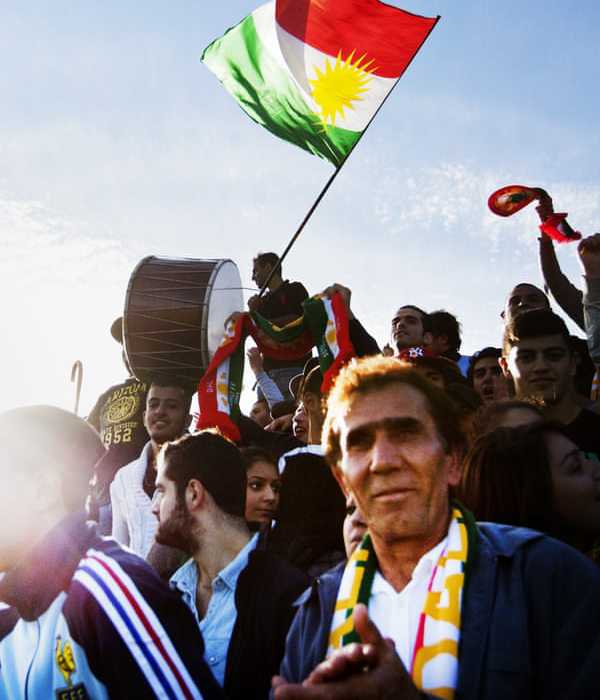From his birth in the small town of Borlänge, thanks to a group of Kurdish refugees, to his rise in
professional football, up to his promotion to the Swedish Serie A. The story of a club that has been
bringing the hopes and dreams of a stateless people to the field for fifteen years.
When the referee whistled three times, people phisically present on the small grandstands of
Domnarvsvallen stadium our into the soccer field. Thay are a messy and loud swarm of boys, men,
children and some young girl. They celebrate because the home team just beat Gais, gaining
promotion in Allsvenskan, the Swedish professional league. They hug the footballers and sing
choirs for the team, many of them wield a tricolor flag – red, white, green – with a bright sun in the
middle. It’s Iraqi Kurdistan flag and that Saturday afternoon of October 28, 2017 at those latitudes,
doesn’t wave because of a new defeat for ISIS but for the result of the match. Because Dalkurd FF
just wrote a beautiful page of football history. The goal scored in the 59th minute by captain Rawez
Lawan is the key that opens the gates of paradise and crowns the dream of a club born only thirteen
years earlier. The history of Dalkurd FF begins in 2004 in Borlänge, a small city with 50.000
inhabitants in the centre-south of Sweden. It’s a swedish city like any other: modern architecture
mix with slender forms of ancient buildings, living together, immersed in scandinavian nature made
up of spruces and patch of green lawn. But there’s vivacity in Borlänge: there is a thriving
alternative music scene that finds expression in the Indie Rock of Mando Diao or in festivals such
as Peace & Love which attracts kids from all over Sweden. In Borlänge, as in many other Swedish
cities, there are also different communities of foreigners: there are those who arrived in the 90s
from Yuguslavia torn apart by the civil war, those fleeing from Somalia and those who instead come
from Iraq with the status of refugee. Like the nine Kurdish boys who in 2004 decide to give life to
their little dream: to found a football club that can help children of migrants to stay out of trouble
and integrate into a reality like the Swedish one. It will be called Dalkurd FF and will have the flag
of Iraqi Kurdistan as its symbol but with the insert of two Dalahäst breed horses, a tribute to the
Swedish region that hosts them. The official uniform is green. Quickly Dalkurd FF is not anymore a
soccer school but becomes a real club, with its own first team made up of a mix of Swedes, Kurds
and other nationalities. The fledgling company’s adventure officially began in 2005, from the
bottom step of the Swedish football pyramid: the Sixth Division. It is immediately a dazzling start:
first championship and first promotion. The team set up almost for fun, dominates its division and
in 2006 is in the Fifth Series. There is no time to get used to the new championship because they get
again a first place in the ranking and another promotion.
